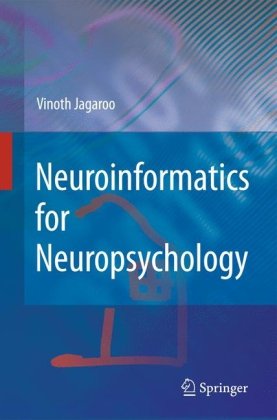

Most ebook files are in PDF format, so you can easily read them using various software such as Foxit Reader or directly on the Google Chrome browser.
Some ebook files are released by publishers in other formats such as .awz, .mobi, .epub, .fb2, etc. You may need to install specific software to read these formats on mobile/PC, such as Calibre.
Please read the tutorial at this link: https://ebookbell.com/faq
We offer FREE conversion to the popular formats you request; however, this may take some time. Therefore, right after payment, please email us, and we will try to provide the service as quickly as possible.
For some exceptional file formats or broken links (if any), please refrain from opening any disputes. Instead, email us first, and we will try to assist within a maximum of 6 hours.
EbookBell Team

4.3
58 reviewsNeuroinformatics for Neuropsychology
Vinoth Jagaroo
Emerson College and Boston University School of Medicine, Boston, MA, USA
Bioinformatics involves specialized application of computer technology to investigative and conceptual problems in biology and medicine; neuroinformatics (NI) is the practice of bioinformatics in the neurosciences. Over the past two decades the biomedical sciences have been revolutionized by databases, data mining and data modeling techniques.
The Human Genome Project, which depended on informatics methods, has been the most well recognized bioinformatics undertaking. Bioinformatics has since been applied all across biology and medicine, and has also transformed almost every avenue in neuroscience. Yet in neuropsychology, NI perspectives remain largely unrealized. Ironically, NI offers enormous potential to the essential praxis of neuropsychology - assessing cognitive behavior and relating cognition to neural systems. Neuroinformatics can be applied to neuropsychology as richly as it has been applied across the neurosciences.
Neuroinformatics for Neuropsychology is the first book to explain the relevance and value of NI to neuropsychology. It systematically describes NI tools, applications and models that can enhance the efforts of neuropsychologists. It also describes the implications of NI for neuropsychology in the 21st century – fundamental shifts away from the conventional modes of research, practice and communication that have thus far characterized the field. One of the foremost experts on the subject:
A vital introduction to a profound technological practice, Neuroinformatics for Neuropsychology is important reading for clinical neuropsychologists, cognitive neuroscientists, behavioral neurologists, and speech-language pathologists. Researchers, clinicians, and graduate students interested in informatics for the brain-behavioral sciences will especially welcome this unique volume.